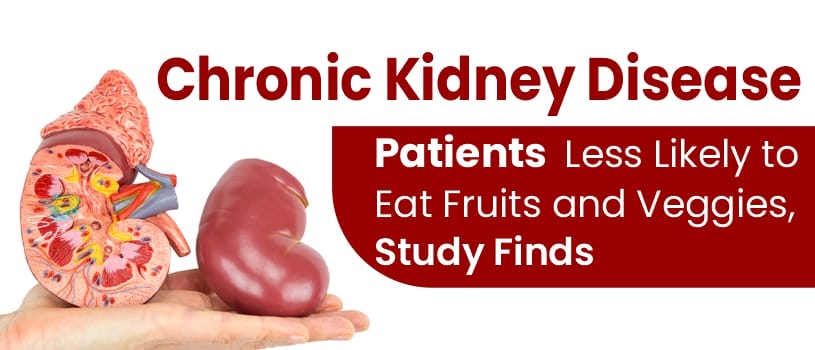Adults suffering from chronic kidney disease often consume fewer fruits and vegetables than those without the condition. The research was conducted during three National Health and Nutrition Examination Survey cycles. It was analysed by the data on eating patterns of fruits and vegetables born between 1988 and 2018.
The scientists discovered that patients suffering from chronic kidney disease (CKD) had a high probability of low fruit and vegetable eating patterns.

Chronic Kidney Disease – Consume fruits and vegetables
51.83% of patients with CKD consumed fewer fruits and vegetables than those with no signs of CKD. In another survey cycle, 46.26% of patients with CKD consumed fewer fruits and vegetables than those with no symptoms of CKD.
Also Read – What is The Link Between Hypertension and Kidney Disease
UVA Health kidney specialist Julia J. Scialla, MD, MHS, explained the importance of fruit consumption. Further, he explained how different fruits and vegetables are strongly linked to health. The overall effects on the health of a patient with CKD with a deficiency of fruits and vegetables in their diet are noticeable. Unnecessarily avoiding healthy fruit and vegetable is a careless decision and one must consider consulting their doctors or nutritionist for the best way out.
Chronic Kidney Diseases Protection
Understanding the risk factor involved in chronic kidney disease is critical; this health condition is widespread across the globe and has several health risks. It occurs when our kidneys are damaged and fail to filter waste from a person’s blood, ultimately leading to high blood pressure and heart-related disease.
Also Read – Learn How Your Ankles can Determine a Serious Risk for Your Heart
There are still several types of research going on to understand the effect of low fruit and vegetable intake that might result from ayurvedic kidney treatment or if other factors play a role. Patients with CKD often receive prescriptions to reduce their potassium consumption – Potassium is commonly found in fruits and vegetables – there is still a limited amount of information about the health benefits and needs further research. With the help of this research, our motive is to promote vegetable consumption and lead a healthy lifestyle.

